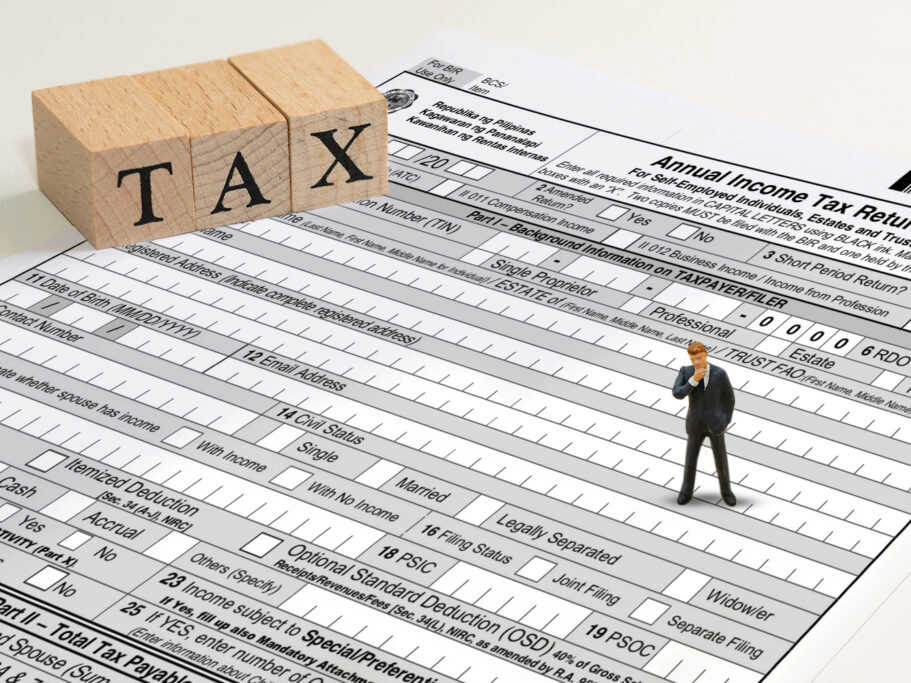
PATTAYA, Thailand – Integrity Legal’s Benjamin Hart certainly struck a chord with his address to the Pattaya City Expat Club on February 12. His aim was to challenge much of the alleged nonsense about foreigners paying personal income tax on overseas income transmitted to Thailand from January 1 2024. Since, he has received almost 20,000 hits on Pattaya Mail’s news website as well as on the Expat club video forum which published the talk in its entirety.
It is obviously true that you are inevitably assured a strong following when you say what people want to hear. In a very different context, The Reformation’s Martin Luther in the sixteenth century was successful in his attacks on the Roman papacy largely because “he said aloud what many people were thinking anyway”. Hart’s credibility in the tax context is enhanced by his Thai citizenship and his rhetoric in putting down foreign accountants whose only interest, he claims, lies in grabbing your cash and pre-empting taxation on global income wherever located.
The essential point is that Thai tax law did not change on January 1 2024, but only the Thai Revenue Department’s interpretation of a detail. Transferring foreign cash to Thailand had long been potentially assessable provided it was sent in the same year it was received, a fact that many expats were totally unaware of. The difference now is that the transfers are potentially assessable sent not in the year of receiving, but in any later one too. A primary (not sole) purpose of TRD in its reinterpretation is to catch companies or individuals with huge offshore assets who had used the loophole to avoid paying their dues.
Maybe the Thai government itself is rethinking its policy. Last week, the finance minister announced that he wanted Thais (no mention of expats) to send more of their overseas wealth to Thailand. Presumably, he was hinting at some sort of exemption for cash transmitted for specific investment purposes. For example, it would be useful if the current ambiguities concerning tax on transmitted cash to buy property (condominiums in the case of foreigners) were cleared up. But this is pure speculation, as is the suggestion that existing retirees in Thailand on specific visas could be “grandfathered” or exempted from further dues if they had proof of clearance from their home country tax authority.
In his speech, Hart did not guarantee his audience forever immunity from Thai personal taxation, even for retirees living largely or exclusively on pre-taxed assets. He hates the idea of taxes moving from remitted income to global wealth and loathes the Organization for Economic Cooperation and Development (OECD) and its worldwide tax agreements which Donald Trump has recently upended for the United States in an executive order. But nobody presently knows what Thailand’s policy will turn out to be. Hart, in his YouTube videos, has also raised the possibility that the Thai tax authority and immigration may eventually collaborate in checking who has spent at least half the year in Thailand, thus becoming a tax resident. He specifically mentioned the Destination Thailand Visa in his videos, but of course any future computerized checks need not stop there.
Competitor countries such as Cambodia and Vietnam look to be more-tax friendly to expats than Thailand but this is because they have neither invoked nor enforced their own rules which are potentially in play. The Philippines stands alone regionally in “guaranteeing” foreigners are free of tax on their transmitted overseas cash, but for how long? Wherever you want to live in the world and whatever the status of your finances, it’s wise to assume that being a member, however reluctantly, of more than one tax jurisdiction is going to become complicated as governments round the world look to boost revenue. Whether good or bad, today’s news is tomorrow’s history.










